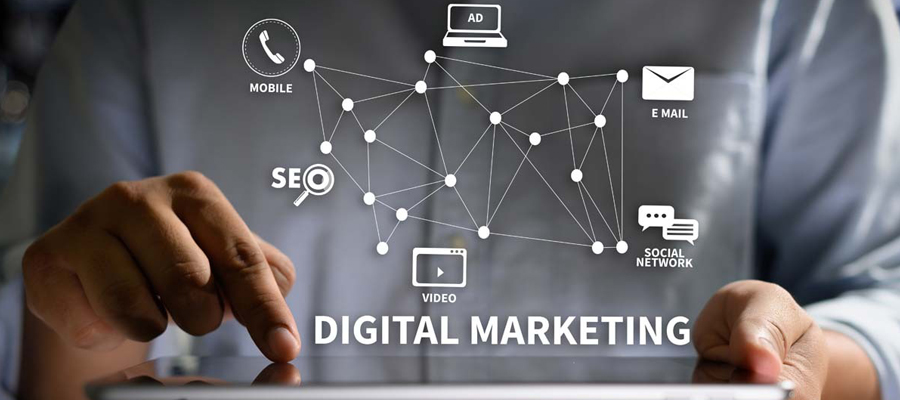In the era of continuous update in the field of Events Management, Technology has become an innovative factor. It's not just about flashy gadgets or sophisticated software; It's about how these tools can improve our standard of life, make our events more memorable, and provide value additions to our participants and partners. Let’s see how technology is shaping the way we plan, execute and evaluate in today’s event industry.
1. Stream Line Planning and Coordination

Gone are the days when event planning meant endless phone calls, loads of paperwork. Event planners now have a suite of digital tools that streamline the entire planning process seamlessly and in less time.
Project Management Tools: Various Event tools have become the backbone of event planning teams these days. This kind of technology helps us to organise our daily task, set deadlines and keep everyone on the same track.
Virtual Collaboration Tools: Teams frequently split up among many cities or even countries, virtual collaboration tools like Zoom and Microsoft Teams have become essential. These technologies allow for real-time communication, which guarantees that everyone is in sync, from the catering manager in London to the event coordinator in India.
2. Modifying Marketing and Promotion

An event Marketing is an Art and a science both in one, and technology has provided us various tools to master both.
Social Media: In todays world where social media has a huge impact in promoting and marketing a product, Platforms such as Facebook, Instagram, Twitter, LinkedIn are very useful when it comes to event promotion. Whether it's about creating a buzz with event hashtags, running targeted ad campaigns, or engaging with potential attendees through live updates and polls, social media is a gold mine for event marketers.
Email Marketing: With Email Marketing tools like Mailchimp and Constant Contact, personalized and targeted email campaigns have become very easy. It helps with sending out various invitations, reminders and updates.
SEO and Analytics: To understand what is the specific factor that drives traffic to your event website plays a very important role. With the help of Google Analytics and other SEO tools, you can make sure your marketing efforts are effective.
3. Simple Registration and Ticketing

Technology has changed the way attendees register for events and purchase tickets.
Online Ticketing Systems: Various ticketing and registration platforms help in making registration and ticketing process simple. These kinds of platform often offers features like early bird pricing, group discounts, & easy payment options making it easy for the participants to book their seat.
Mobile Ticketing: With most people glued to their smartphones, mobile ticketing is a no-brainer. In today’s world since most individuals have become addicted to their phones, mobile ticketing is not a difficult process for them. Participants can effortlessly register oneself, can make the payment and also check the details about the event through their mobile phone conveniently.
4. Increase Engagement and Interaction

As they say an engaged audience is a happy audience, and technology offers numerous ways to keep participants engage and busy.
Event Apps: Custom event apps are a fantastic way to keep attendees informed and engaged. Customised event apps is a great method to keep your participants informed and updated. Various such Apps namely Whova, Attendify and Events Genie provides various beneficial features such as speakers information, Exhibitors and Delegates profiling, Scan Badge to capture leads, real-time notification, and many more in your hand.
Live Polling and Q&A: Interactive tools like Slido, Poll Everywhere, and Mentimeter bring a new level of engagement to sessions. Tools like Slido, Mentimeter and Poll Everywhere helps in creating a new level of engagement during sessions. Live polls, Q&A sessions, and interactive presentations helps in participants involvement.
Virtual and Hybrid Events: The pandemic accelerated the adoption of virtual and hybrid events. Due to the pandemic people are now shifting to virtual and hybrid events. Various Platforms namely Hopin, VEX Events, Zoom, and Microsoft Teams have made it easy to host an event that people can join from sitting in any part of the world, making your event reach spread wide.
5. Gathering Data and Collecting Feedback

For every event, Post-event Analysis is very important for future improvement, and here technology plays a major role.
Surveys and Feedback Forms: Collecting feedback is easier than ever with tools like SurveyMonkey and Google Forms. With tools such as SurveyMonkey and Google Forms it has become very easy to collect feedback. These kinds of platforms helps you to understand attendees thoughts and their experiences, offering valuable insights for future events.
Data Analytics: With Advanced level analytics tools it becomes easy to track attendees behaviour , engagement level and their level of satisfaction. With the help of this data, it becomes easy to understand what worked out and what didn’t, and the measures required to make the next event better.
6. Ensuring Security and Accessibility

Safety and accessibility are utmost crucial in modern events and technology helps ensure both.
Secure Payment Processing: Stripes and PayPal kinds of platform ensure secure payment processing, and protect both you as well as your participants from fraud and ensuring a smooth transaction process.
Accessibility Features: With Modern technology events has become more accessible. To ensure that participants can attend and enjoy the event, features including assistive listening devices, sign language interpretation, and closed captioning are included.
Conclusion
In modern event management, technology plays an important role. With the help of such technologies, all the complex and time-consuming processes have turned into effortless task. Also helped in increasing participants engagement and the reach of events. These enhancement in technology has enabled event organisers to focus on creating memorable experience for their participants rather than wasting their most of the time on administrative work. Using these kinds of advanced technology is not only just a trend, but now has become a necessity in this competitive world of event management. As we talk about the future, one thing is clearly visible that technology is going to be the heart of an unforgettable events.



